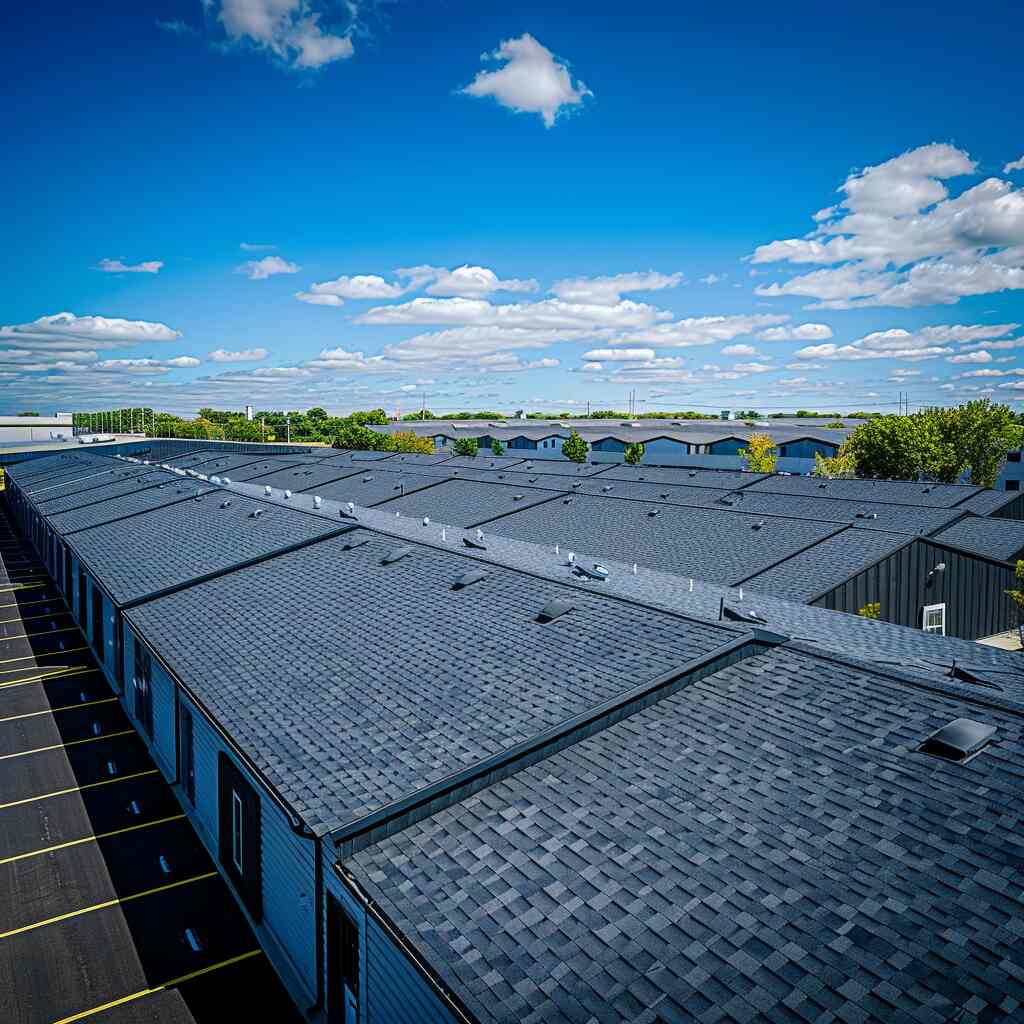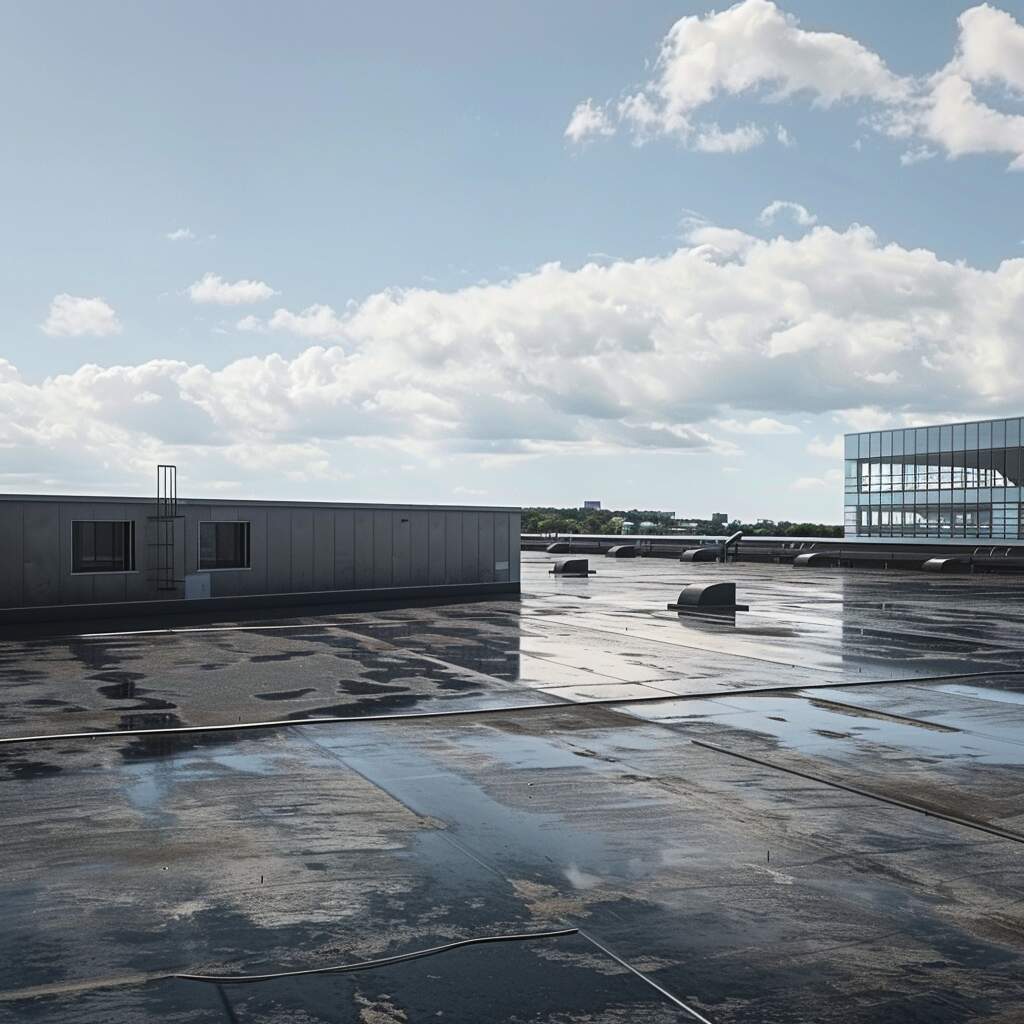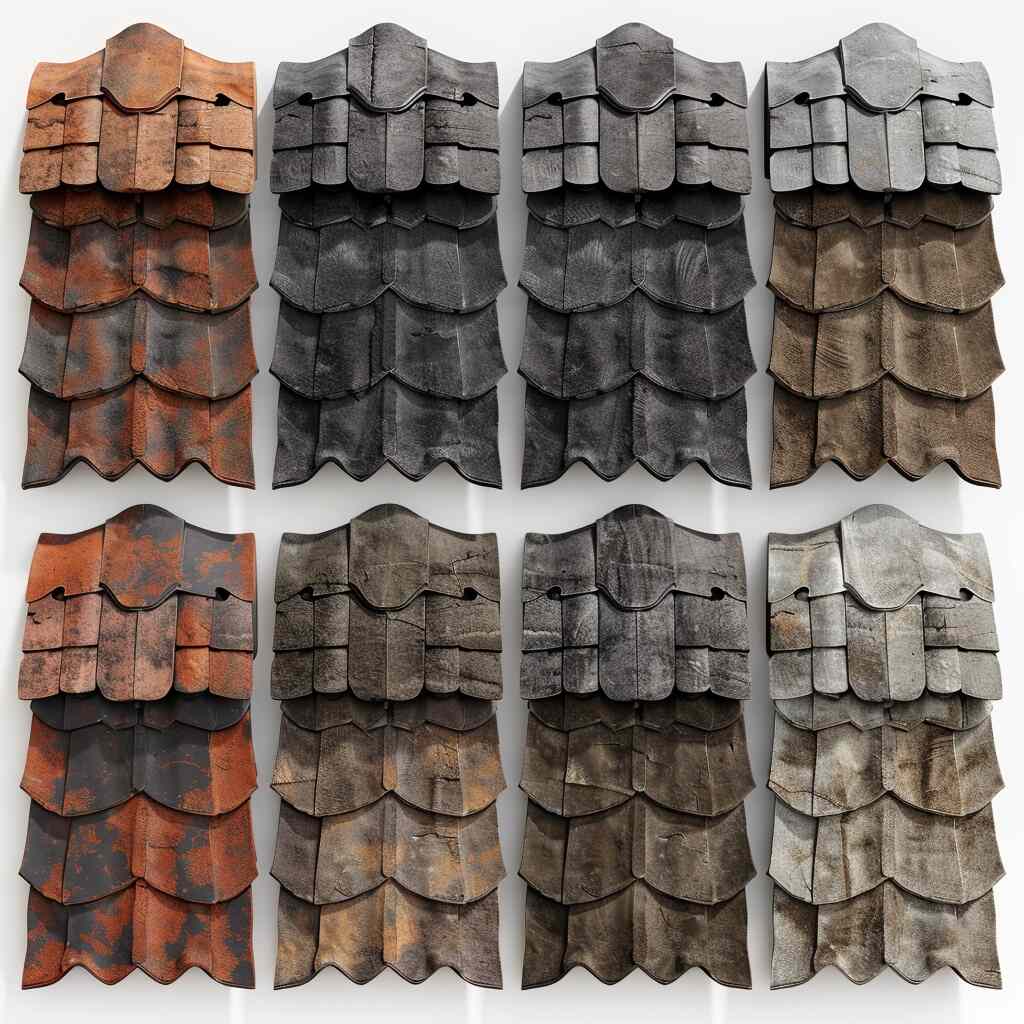Get Free Estimate
No, not all commercial roofs have shingles. Shingles are a popular choice for residential roofs due to their affordability and ease of installation. However, commercial buildings often have different needs. Their large, flat surfaces are better suited for materials like tar and gravel, metal sheets, or sprayed polyurethane foam. These materials are more durable and better handle factors like pooling water and heavy equipment that may be placed on the roof.
Shingles can be used on some commercial buildings, though. Smaller buildings or those with a pitched roof design might utilize shingles for their aesthetic appeal or affordability.
When To Use Commercial Roofing With Shingles

There are some instances where shingle roofing can be suitable for commercial buildings. Shingles may be a viable option for smaller commercial structures that have steeply pitched roof lines similar to residential homes. Examples include small retail shops, doctors’ offices, or standalone commercial properties under 5,000 square feet. The sharp incline of these roof designs allows shingles to be installed using standard construction methods. Shingles can also work for commercial buildings where the roof sees minimal foot or equipment traffic, which reduces wear-and-tear concerns. Examples include small storage sheds or detached garages used for light vehicle shelter.
Budget constraints may also factor into choosing shingles for some light commercial projects. While shingles have a slightly shorter lifespan than built-up commercial roofing systems, their lower upfront material and installation costs make them an attractive option for businesses on a tight budget. Shingles could allow owners to stay on schedule and under budget for projects with important aesthetics. As long as maintenance is prioritized to replace worn shingles before leaks develop, life-cycle costs may still prove reasonable for smaller commercial ventures.
When To Not Use Commercial Roofing with Shingles

Shingles are not well-suited for most commercial structures due to the characteristics of larger building designs. One major limitation is that shingles should only be used on roofs with slopes of 4/12 or greater to allow for proper drainage. However, many commercial buildings feature flat or low-pitched roofs that often cannot meet this grade. Shingle roofs on low-sloped surfaces are more prone to moss growth, blown-off tabs, and eventual leaks over time.
Roof traffic is also an important consideration, as shingles generally do not withstand heavy foot or equipment traffic or other commercial materials. High-traffic commercial areas like warehouses, workshops, retailers, or industrial buildings would quickly damage shingle surfaces from foot traffic, storage, or vehicular traffic on the roof. Harsh climate conditions in colder northern regions or hot southern areas with frequent windstorms and hurricanes also demand harder-wearing roofing like modified bitumen.
Code requirements are another potential limitation, as some building departments have additional commercial roofing specifications beyond standard residential shingle guidelines. This helps ensure business roofs are built to withstand more severe weather events, additional loads from equipment, and longer warranty periods.
What Type of Shingles Are Best For My Commercial Building

When choosing shingles for a commercial building roof, it’s important to select a product rated for commercial use rather than standard residential shingles. Commercial-grade shingles are designed to withstand the additional stresses that come with industrial applications like foot and equipment traffic, wind uplift, and more extreme weather exposure.
Some good options to consider include thicker, fiberglass-based architectural shingles or composite shingles. Architectural shingles have a longer lifespan of up to 50 years when used commercially. They offer additional thickness, added weather resistance, and a Class A fire rating compared to typical three-tab shingles. One perk of architectural shingles is similar aesthetic looks to wood shake or slate roofs at a lower cost.
Composite shingles are a hybrid product made of asphalt and polymer fibers for extra durability. Top brands like GAF Timberline HDZ offer 140 mph wind ratings, suitable for high-wind areas. Composites are environmentally friendly, as they contain recycled materials. Some lines also have Class 4 impact resistance, ideal for commercial hail zones.
For very small-footprint commercial buildings, laminate or tile shingles can perform well if within code. Consider specialty brands like Malarkey, which make commercial-rated laminate and tile options in both dimensional and flat-style profiles. Proper commercial underlayments, such as ice and water barrier membranes at eaves, valleys, and problem areas, is also important.
Always select self-sealing adhesive shingle strips over standard asphalt shingles. Also, confirm any product has a non-prorated commercial-grade lifetime warranty of at least 30 years. Installed properly, these premium shingle varieties can suit light commercial applications.
Bottom Line
In the end, using shingles for a commercial roof is not usually recommended unless certain conditions are met. Other options like metal panels, modified bitumen, or spray foam are often better commercial material choices. However, premium commercial-grade shingles can work in the right application – such as a small, pitched structure with low traffic. The key is choosing a product rated for the demands of your specific roof, through wind speed ratings, impact resistance, warranty, and material thickness. With the proper high-quality shingle, some light commercial buildings can benefit from the aesthetics and affordable upfront cost of shingle roofing.
CONTACT US
Frequently Asked Questions
There are several key ways to extend the life of your commercial roof. Regular inspections by a professional are crucial to catch small problems before they snowball. Keeping your roof clean of debris and ensuring proper drainage will prevent water from accumulating and causing damage. Trimming back tree branches that overhang the roof will prevent them from scratching the surface and creating entry points for leaks. Finally, reflective coatings can help protect your roof from the sun’s harmful rays. By following these tips, you can significantly extend the lifespan of your commercial roof and save money in the long run.
